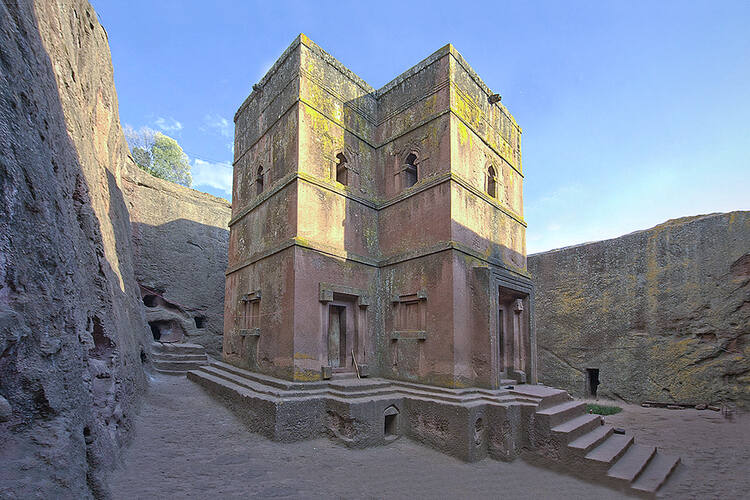Joaquim Magalhães de Castro
Afonso Mendes was born in Santo Aleixo, a village in the Portuguese municipality of Moura, in 1579. Raised on the border, Afonso was still young when he joined the Society of Jesus.
From the Alentejo he went to Coimbra, where he obtained a doctorate in Theology and made a career. He taught at Colégio das Artes, a very important institute founded by D. João III and later handed over to the good guard of the Company. There Afonso was revealed to have a reputable academic work, his name reached the ears of the Holy Father who, in 1622, made him Archbishop and Patriarch of Ethiopia. D. Afonso left in 1623 for Africa.
Ethiopia, a Christian stronghold embedded in Africa, lived for years in a situation of great danger. The country had been at the mercy of the Turks ever since the latter, triumphant in the conflict that had pitted him against Mamluk Egypt, had entered Cairo. Portugal found in Abyssinia an ally that was more needy than useful, but it did not provide for the solidarity that its meager means allowed it.
Eloquent demonstration of the Portuguese commitment to the Ethiopian cause was the expedition that Cristóvão da Gama, son of Vasco da Gama, captained to that country. The Muslim threat was still very much alive eighty years after Gama’s defeat, which will have convinced the Ethiopians – who are Miaphysite Orthodox – of the need to convert to Roman Catholicism.
For this, Afonso Mendes was sent to Ethiopia, where he arrived in 1625. In that country, the Portuguese led the process of subordinating the Abyssinian church to the Holy See. The decision was not well received by most of the subjects of the monarchy, however, with many refusing to cut with orthodoxy.
Ethiopia then plunged into a violent flood of insubordination and civil war that led, in 1632, to the review of religious policy by Emperor Susenyos. With the monarch’s death, Catholicism was banned by the new emperor, Basilid, who soon had the Catholic clergy arrested and exiled.
Afonso Mendes suffered the same fate. Forced to abandon a Catholic mission in Fremona – closure that new authorities promptly ordered – Mendes went with his companions into exile.
The trip proved to be fraught with tribulations: the Portuguese were left without money or other goods, so they ended up robbed, beaten and kidnapped by local bandits.
When it sailed into the Red Sea, the team was kidnapped by the Ottoman military and assessed with inexcusable cruelties, but it ended up freeing itself by raising – details remain obscure – the large sum that the Turks demanded for that purpose.
From the Ottoman captivity the unfortunate Portuguese clerics went to Diu. Mendes would not return to the kingdom, having lived the rest of his days in Goa, where he would gain political impact. His extraordinary life ended in 1659. He was over 80 years old.


 Follow
Follow


